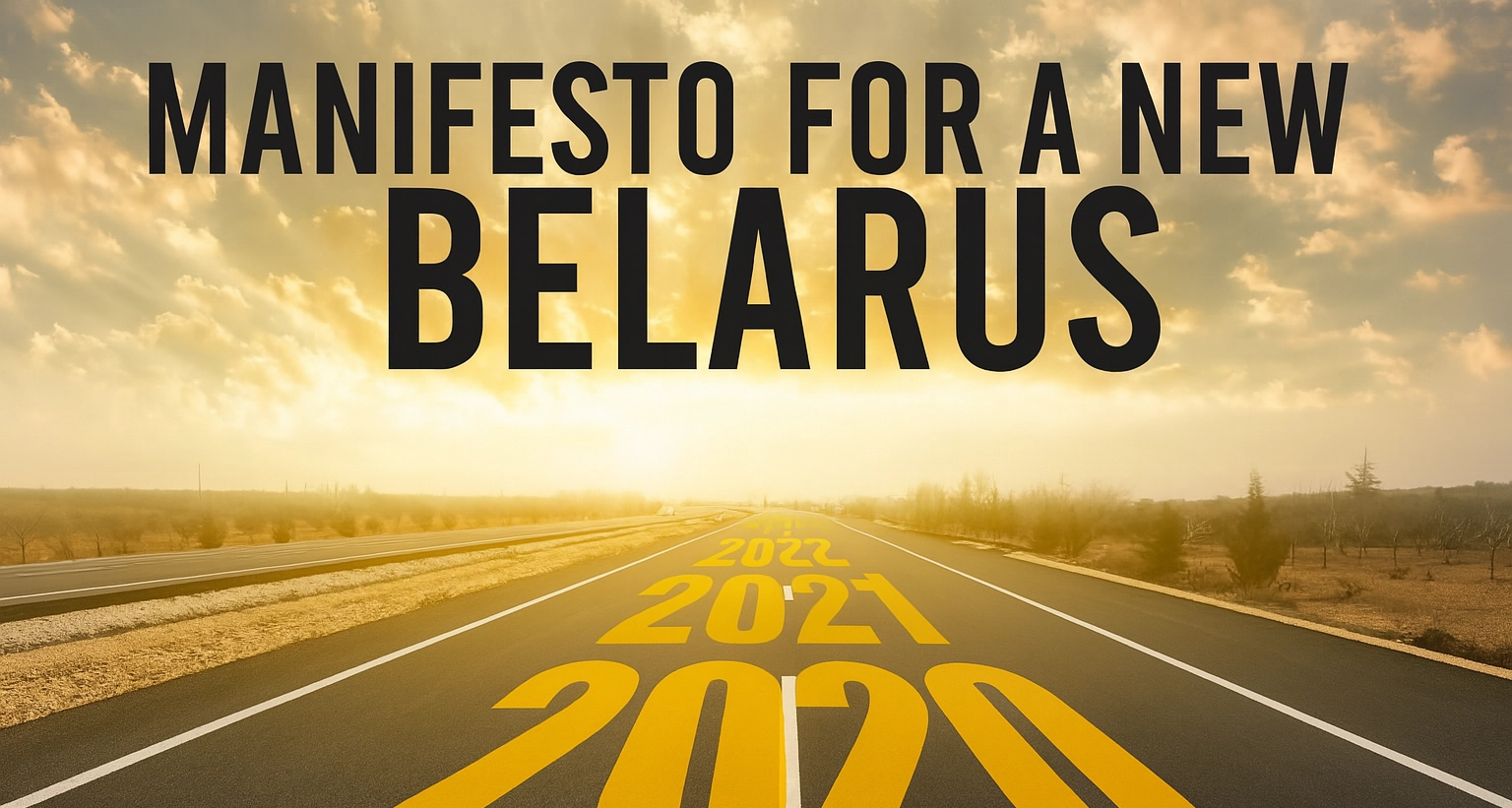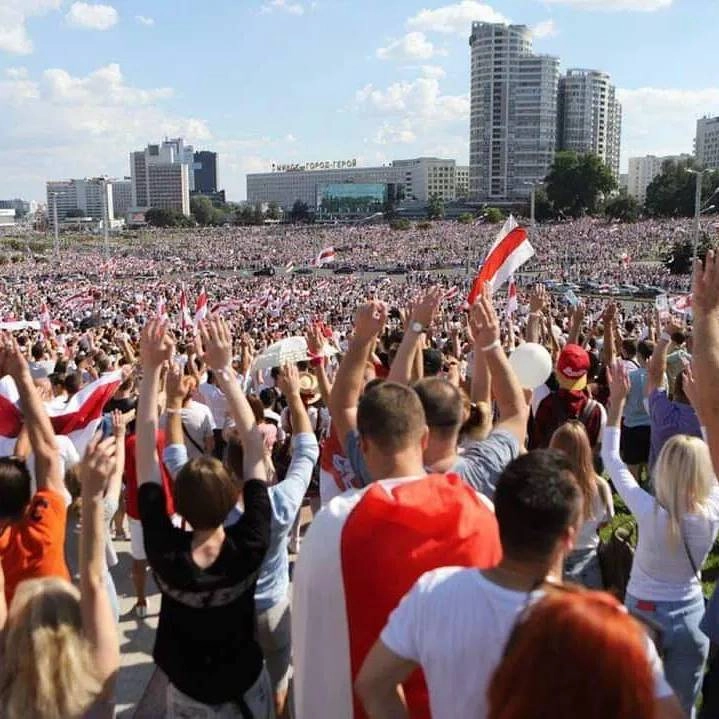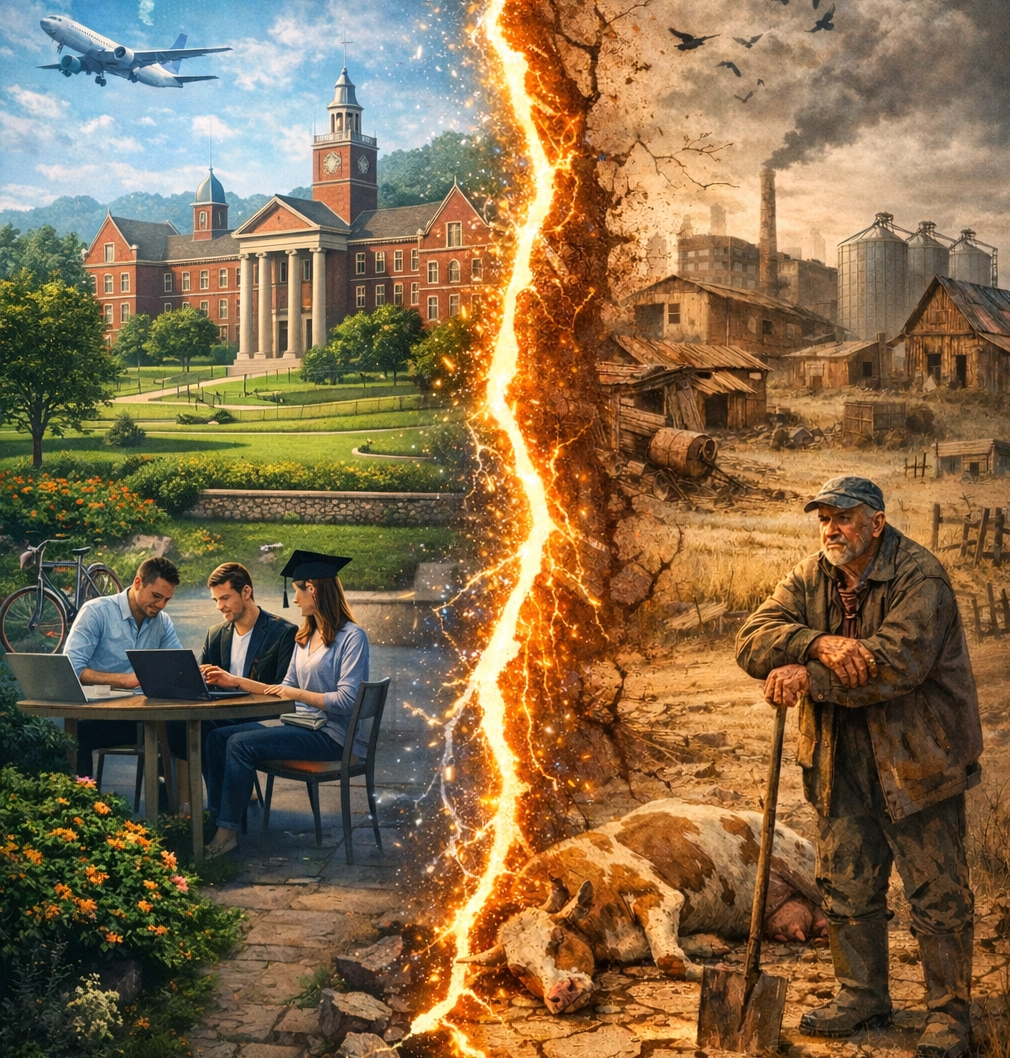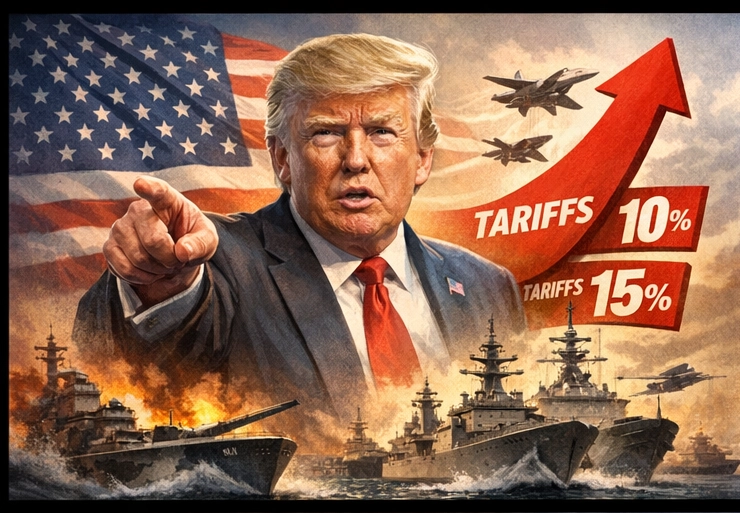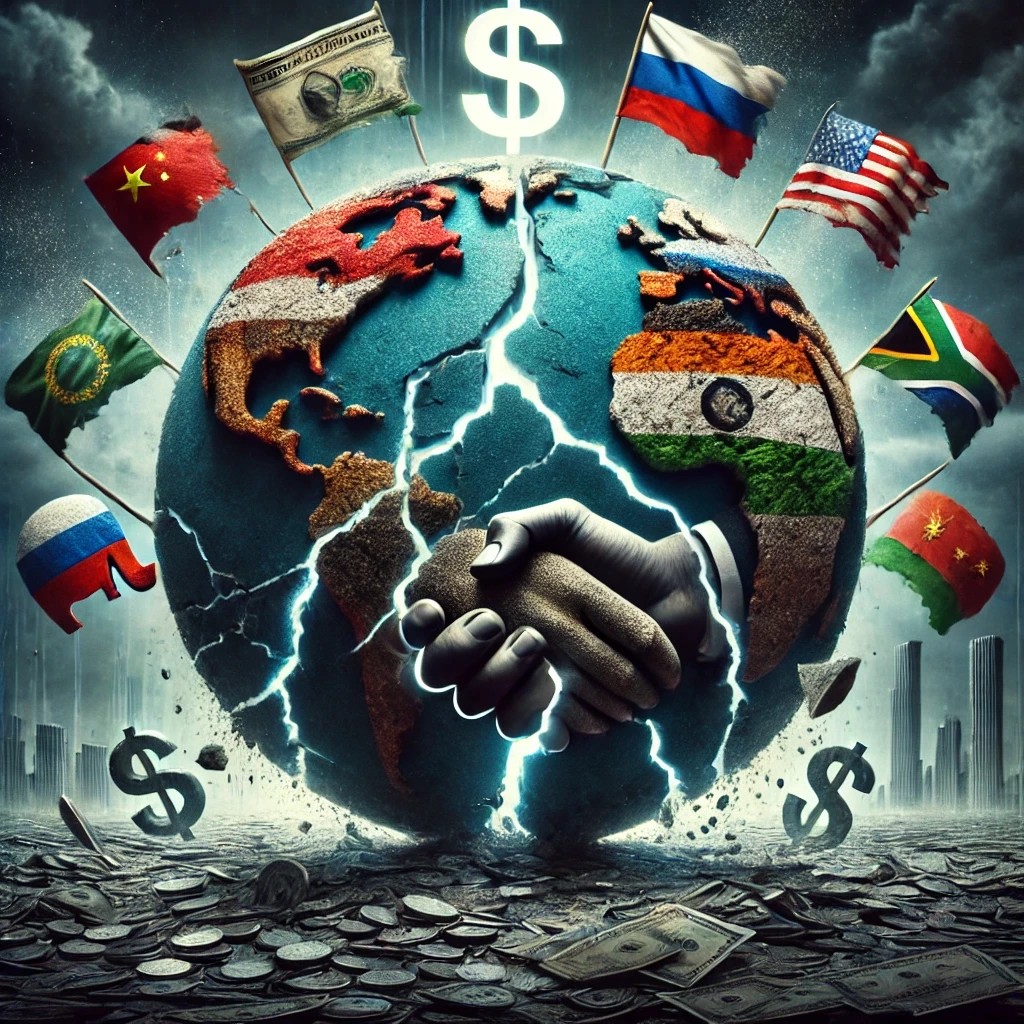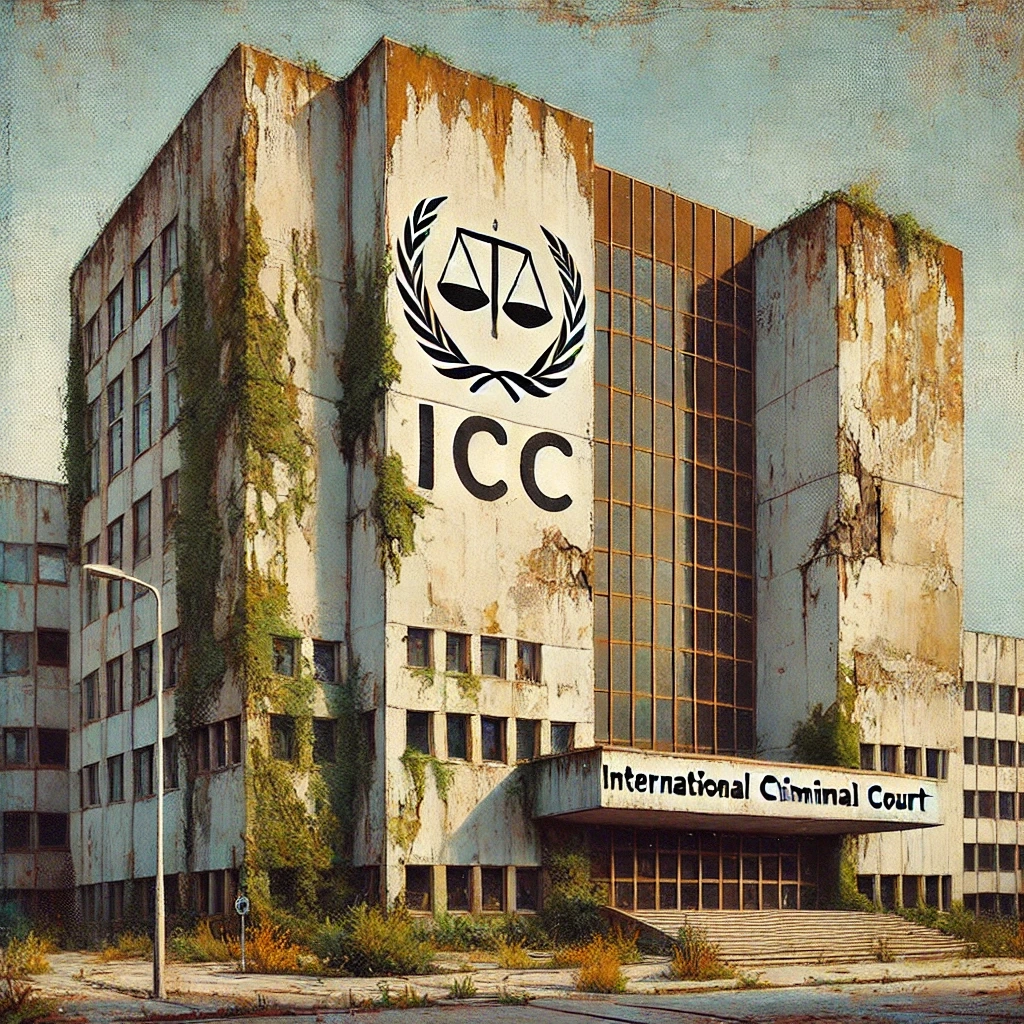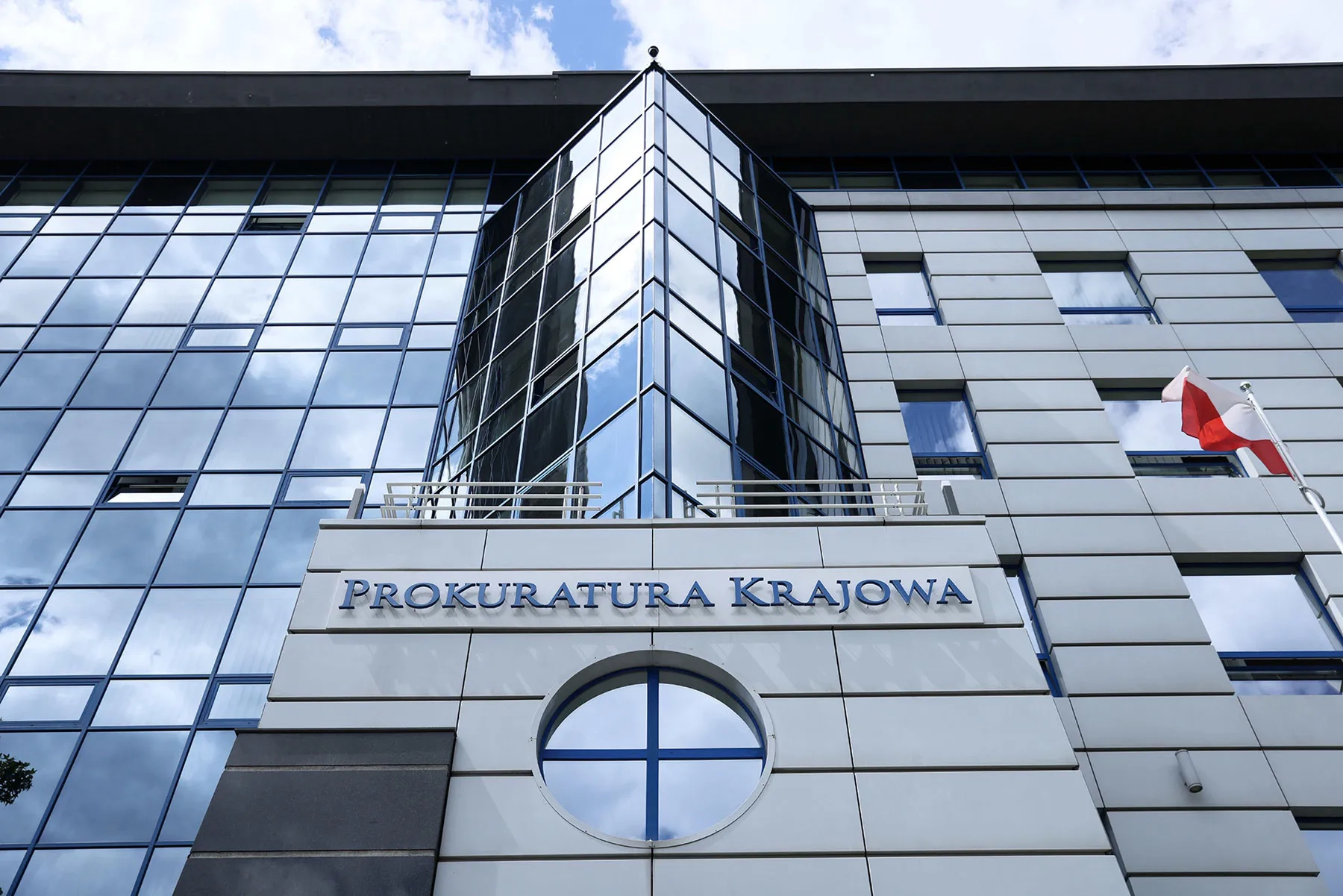In 2020, the world witnessed unprecedented events in the Republic of Belarus. Hundreds of thousands of citizens took to the streets in protest against the falsified presidential election. In the first three days following the announcement of the results, the country was engulfed in brutal clashes between demonstrators and riot police. But soon, the wave of violence unexpectedly subsided — the streets of Minsk and other cities filled with peaceful marches numbering in the tens of thousands.
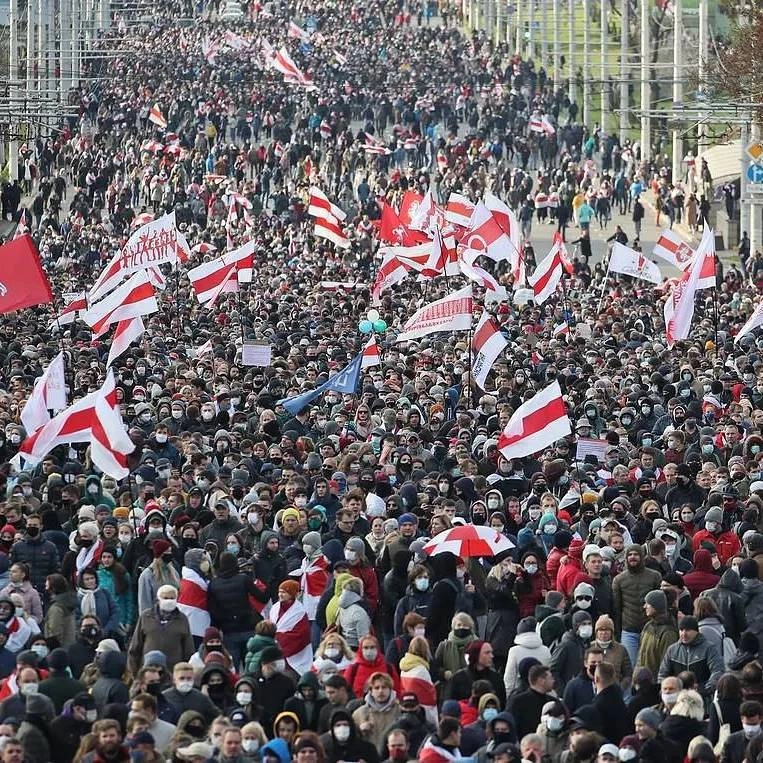
Never before in post-Soviet Europe had such a massive number of people mobilized. In Minsk alone, the protests drew between 350,000 and 500,000 people, depending on estimates. Nationwide, the total number of participants approached one million — more than the famous mass demonstrations in Warsaw during the Solidarity movement, and significantly surpassing the scale of historic 20th-century popular uprisings in Vilnius, Riga, Prague, or Budapest.
Why Didn't the Peaceful Revolution Lead to a Change in Power?
To understand this, one must look at the context in which the election took place. Globally, the world was in a state of informational and social paralysis brought on by the onset of the COVID-19 pandemic and sweeping lockdowns. While almost every country responded by imposing strict quarantine measures and redirecting public funds to combat the virus, Belarus stood out as an exception — the authorities officially denied the pandemic altogether and refused to implement any response.
Tensions in Belarusian society were escalating. And it wasn't just because Lukashenko advised citizens to “treat the virus with vodka, saunas, and tractors,” or claimed that “cheese is the best anti-COVID remedy,” and that “there’s no virus on ice.” These bizarre remarks had long been a feature of his public persona.
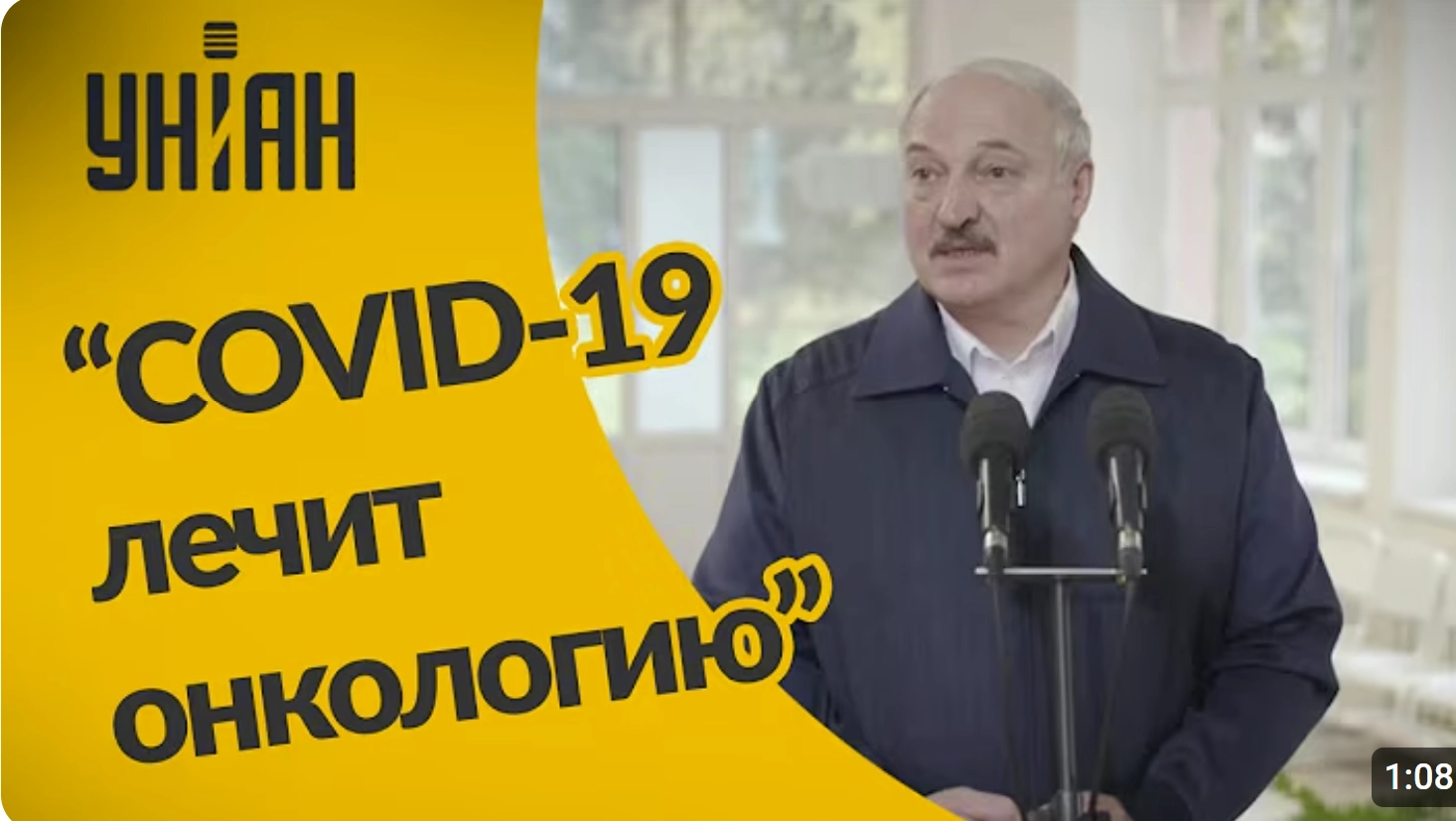
He even claimed that “coronavirus cures cancer.”
But the problem ran deeper. Around the world, tax revenues were being used to purchase medical supplies and provide compensation to individuals and businesses affected by the shutdowns. In Belarus, despite workers contributing up to 50% of their earnings in taxes and social fund payments, the state returned nothing to the people during this critical time. The government deliberately ignored the COVID crisis not out of ignorance, but because the budget had already been squandered — on lavish residences, private jets, and other symbols of autocratic luxury that had become widely known.
Collapse of Trust in Traditional Opposition
For years, the traditional Belarusian opposition had been seen as an isolated circle sustained by foreign funding, with no professional experience outside of politics. This allowed state media to portray them as out-of-touch, incompetent “grant-suckers” disconnected from real life.
On the eve of the 2020 election, they received yet another Western grant to organize opposition primaries intended to select a unified candidate. But the initiative failed to resonate with the public: across the entire country, fewer than 70 people participated. This reflected a profound crisis of trust in those whose legitimacy depended solely on foreign funding.
A New Civic Consciousness Awakens
In this vacuum of trust — neither in the regime nor the traditional opposition — a new civic consciousness began to emerge. Spontaneous grassroots self-organization appeared across the country, catching the regime completely unprepared. Unlike opposition parties, long infiltrated and surveilled by the secret police (with party registration and meetings impossible without informants), this wave of civic engagement came from the bottom up and couldn’t be centrally controlled.
When the state failed to provide basic sanitary necessities — masks, soap, disinfectants — citizens took matters into their own hands. People began sewing masks at home. Parent committees raised money to buy hygiene supplies for schools. Volunteer groups brought doctors water, food, and coffee. These were not political acts, but they had immense mobilizing power. Their spontaneity, scale, and lack of centralized leadership made them immune to state control — unlike the few formal political groups already under surveillance.
The Election Announcement
On May 8, 2020, in the midst of the pandemic, the authorities announced early presidential elections. The strategy was to “dry out” the campaign as much as possible and limit the chances for real alternative candidates to gain traction.
The Central Election Commission, headed by Lidia Yermoshina — a long-time organizer of electoral fraud — violated both the Constitution and the Electoral Code by reducing the legal campaign period from five to just three months. This hit especially hard during the signature collection phase: instead of the standard two months, candidates had just over a week to register their initiative groups.
By law, each candidate had to gather at least 100,000 valid voter signatures. Only officially registered members of their initiative group — who had to obtain credentials from the CEC — could collect them. The regime assumed that in such a short window, no independent candidate would be able to recruit enough volunteers. During a pandemic, they also counted on fear: it was assumed that many citizens, afraid of infection, would simply refuse to open the door to signature gatherers.
Lukashenko's Pseudo-Candidacy
As in previous elections, Lukashenko had no intention of going through the legal signature-gathering process. He appointed Mikhail Orda — head of the Federation of Trade Unions of Belarus, a semi-state body with mandatory membership for all public sector workers — to lead his campaign.
In the run-up to the election, under threats of inspections and fines, Lukashenko’s envoys pushed for the creation of trade union cells even in private companies. This was enforced through Decree No. 4, which mandated the creation of trade unions in all labor collectives regardless of ownership. Union operatives became particularly active in the High Tech Park, where Belarus’s largest private enterprises — some employing thousands — were based.
The purpose of Decree No. 4 was to extend the state surveillance apparatus into the private sector, using the same logic previously applied to political parties and civic groups. The new trade union network allowed the regime to monitor economic actors with the same intensity as political ones.
Orda’s task was to bypass the signature collection process entirely by submitting precompiled lists of union members to the Central Election Commission, who were then automatically counted as supporters of Lukashenko’s candidacy.
This method eliminated the need for direct contact with the public, which could have exposed the regime’s lack of grassroots support. More importantly, signature collectors for Lukashenko risked facing not indifference but open hostility, insults, and outright refusals. The union list strategy neutralized that risk entirely. It was less about creating the illusion of mass support and more about shielding Lukashenko’s inner circle from the psychological impact of seeing — firsthand — how deeply unpopular he had become.
Such demoralization could have spread into the security forces as well, making it harder to convince them that “the people” didn’t want change — only a mythical “fifth column” of “scum,” “speculators,” and “traitors.” It also would have undermined the regime’s favorite propaganda line about Western plots driven by jealousy over Belarus’s supposed “purity and order.”
May 8, 2020 — My Decision to Run
That same day, as the elections were officially announced, I declared my intention to run for the presidency. It was not a spontaneous move, but the result of deep reflection. I knew the country stood at a historic crossroads — between stagnation and renewal, between the past and the future.
I never separated myself from Belarusian statehood. After the collapse of the Soviet Union, I returned to independent Belarus and joined the effort to build its foreign policy. I worked in the Ministry of Foreign Affairs, became advisor to the country’s first head of state, Stanislav Shushkevich, later served as senior advisor at the CIS Executive Committee, and was eventually appointed First Deputy Foreign Minister and then Ambassador to the United States. But the defining chapter of my life was building the Belarus High Tech Park — the largest IT cluster in Central and Eastern Europe.
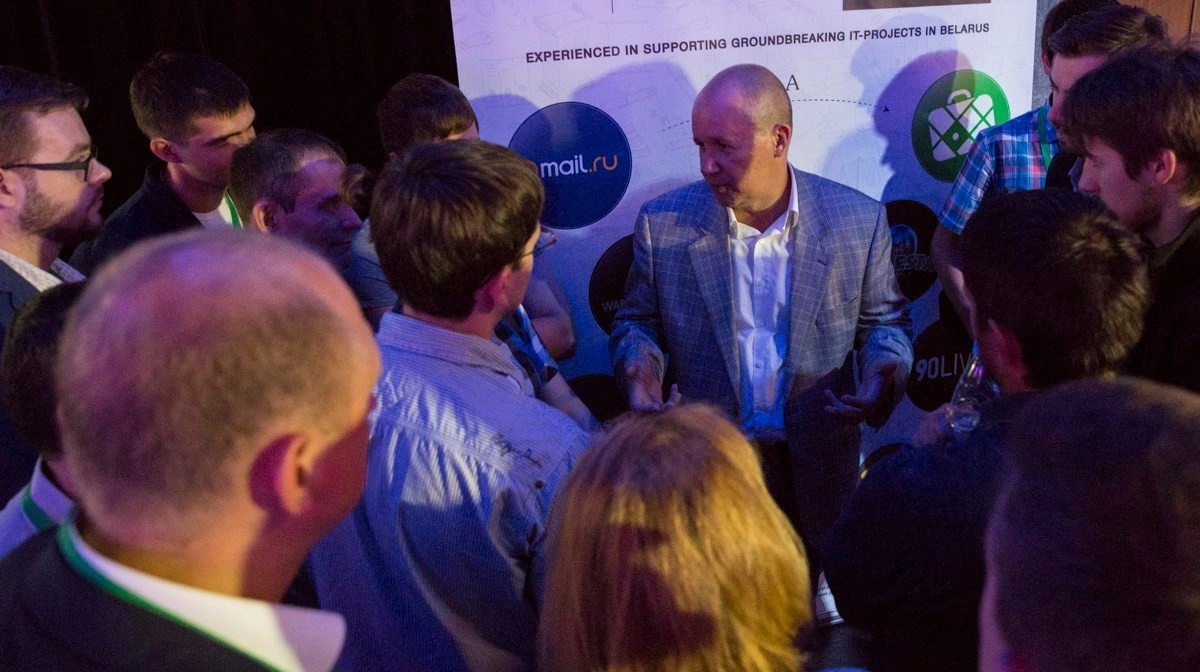
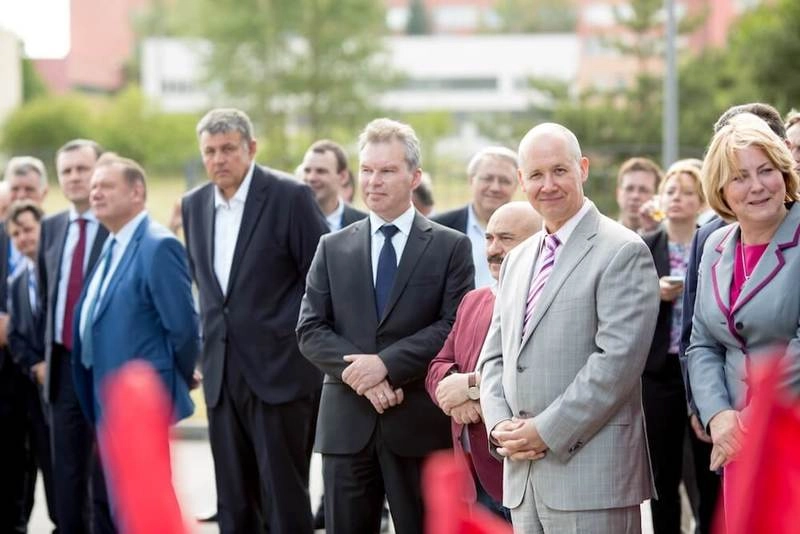
In an environment of legal and institutional uncertainty, and without any access to the state budget, I managed to create a world-class innovation ecosystem. The Park became a magnet for global tech giants and home to hundreds of successful startups that made Belarus known around the world. Major outlets like the Financial Times, The Washington Post, Bloomberg, and Euronews covered it as a rare example of progress emerging within an authoritarian system.
By 2020, the High Tech Park included around 500 resident companies and exported over $2 billion in services. It became a symbol of what Belarus’s future could be.
And that is precisely why I became inconvenient for the regime. When repression against tech entrepreneurs began, I spoke out. I publicly opposed the arrests of Victor Prokopenya and top IBA managers and called for the repeal of the Soviet-era criminal charge of “illegal entrepreneurship,” which was undermining trust in the country.
My stance led to a direct clash with Prosecutor General Alexander Konyuk, which ultimately cost me my post. But I saw how society responded — people stood with me. That’s why, on May 8, 2020, alongside my announcement, I published the “Manifesto of the New Belarus,” laying out my reform vision.
A Choice Beyond the Old Parties
Just three days later, on May 11, Victor Babaryka also declared his candidacy. A respected banker, philanthropist, and intellectual far removed from traditional opposition politics, he had financed cultural initiatives, brought Chaim Soutine’s painting “Eva” back to Belarus, and supported the MolaMola crowdfunding platform, which became crucial in supporting the healthcare system during the pandemic.
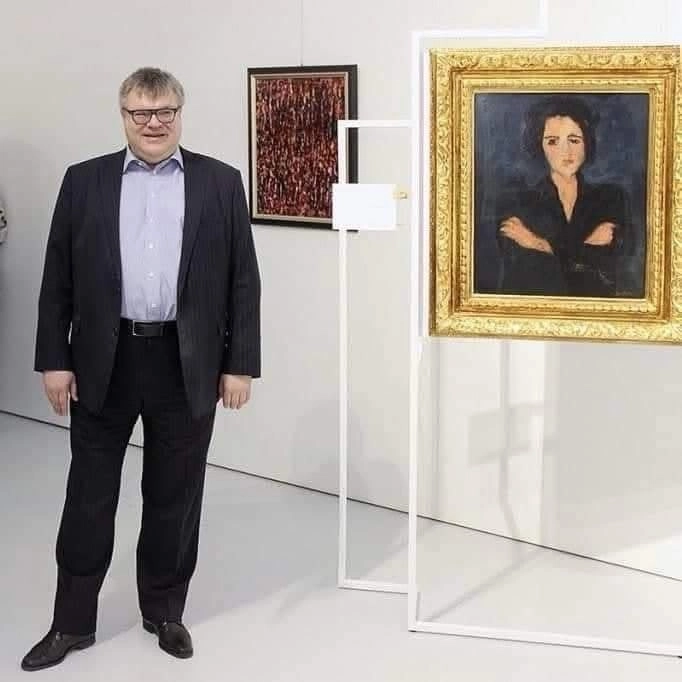
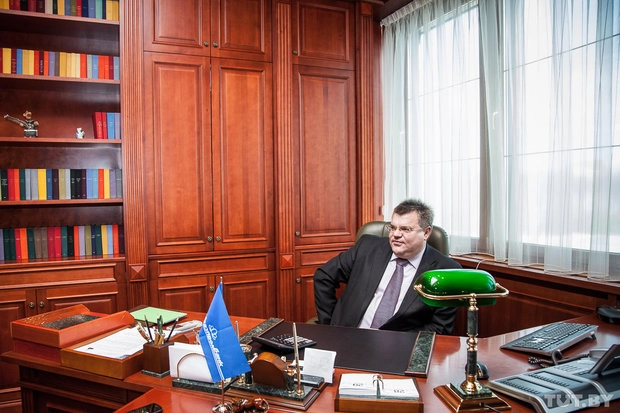
Our emergence shocked the regime. We were not part of the discredited opposition, long portrayed as incapable of constructive work. We didn’t speak in slogans — our records spoke for us. We had each built something tangible — in business, in government, in culture.
The Voice of the Provinces: Sergei Tikhanovsky
Sergei Tikhanovsky — a blogger and activist without office or title — carried a rare authenticity and connection to ordinary people. His YouTube channel A Country for Life became a window into Belarusian reality. Traveling through the provinces, he gave a voice to the voiceless and shattered the illusion of prosperity carefully curated by state media. His language was simple, direct, and deeply resonant.
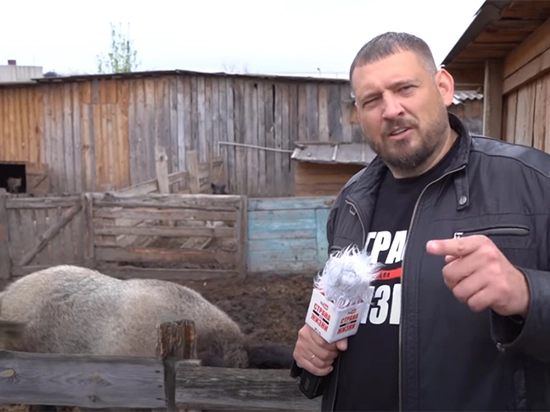
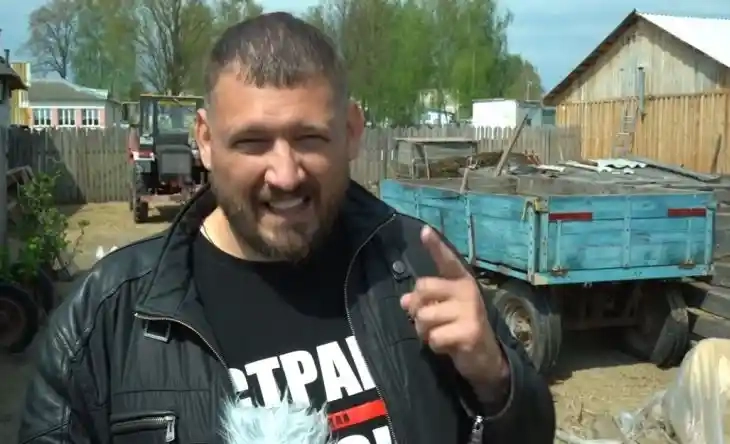
He proved something essential: protest wasn’t just for urban intellectuals. It was a national demand — a desire to live without fear or humiliation.
A Unified Reflection of the Nation's Will
We were not allies in a formal sense. We came from different walks of life and represented different approaches. But together, we embodied a new societal demand: that Belarus deserves a better future.
For the first time in many years, the people were presented with a genuine choice — not between past and past, but between past and future. And that marked the beginning of the revolution.
To be continued
